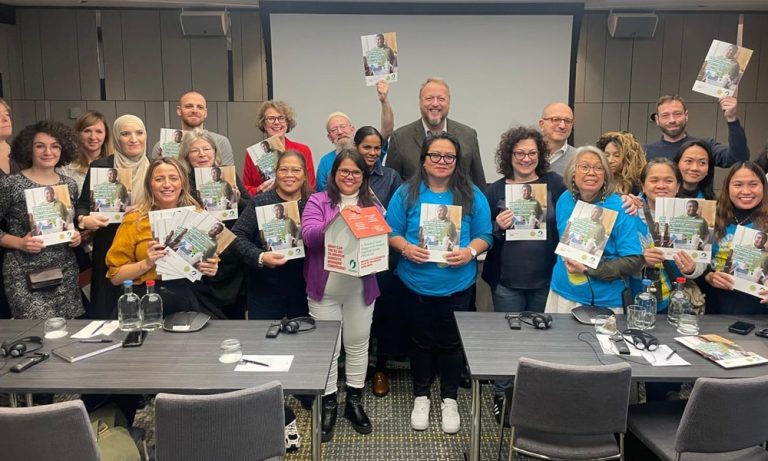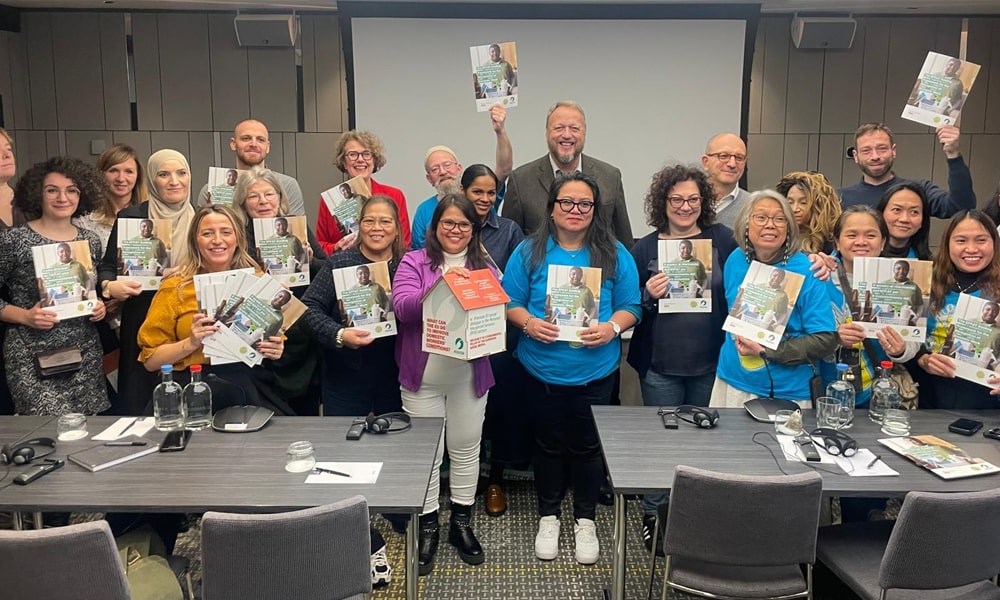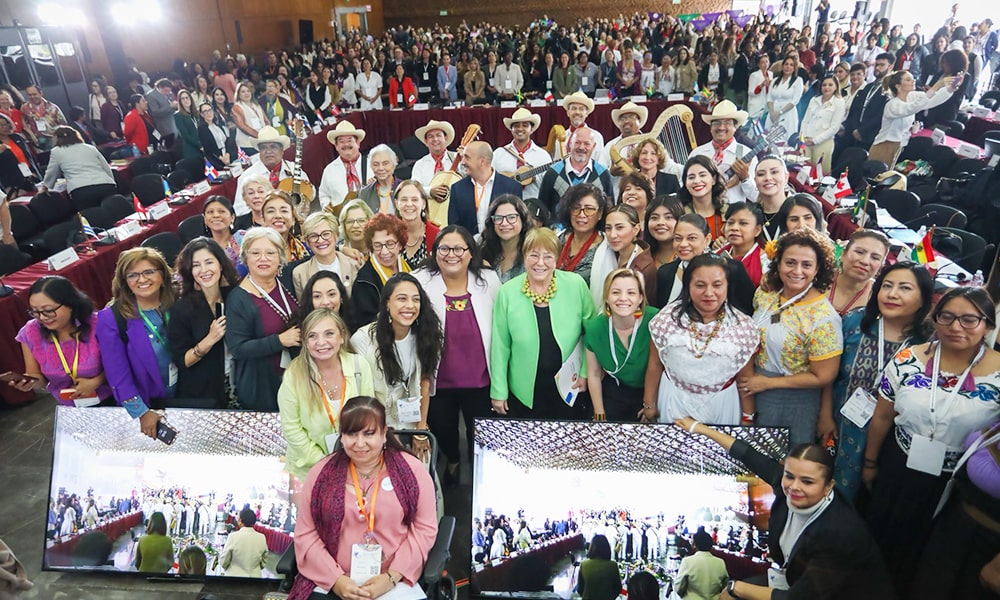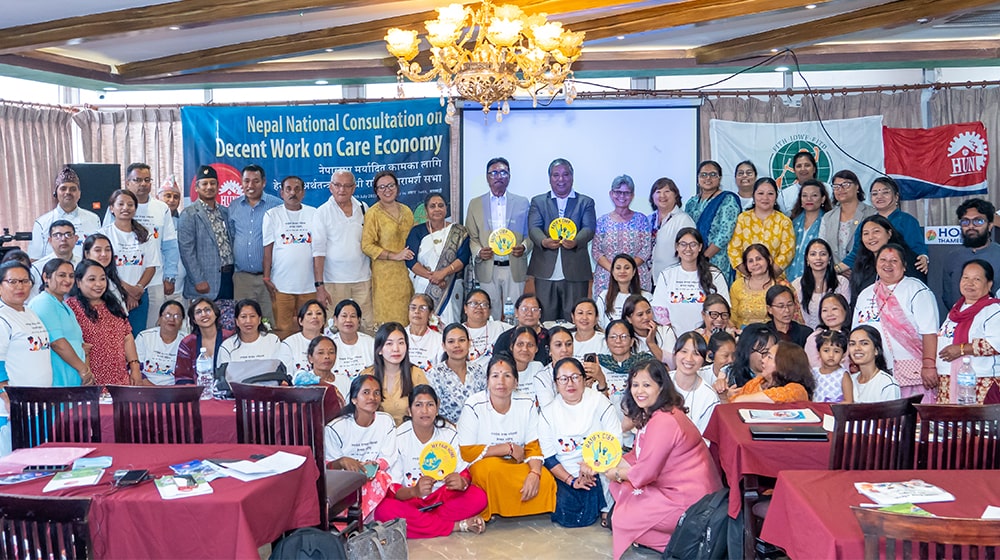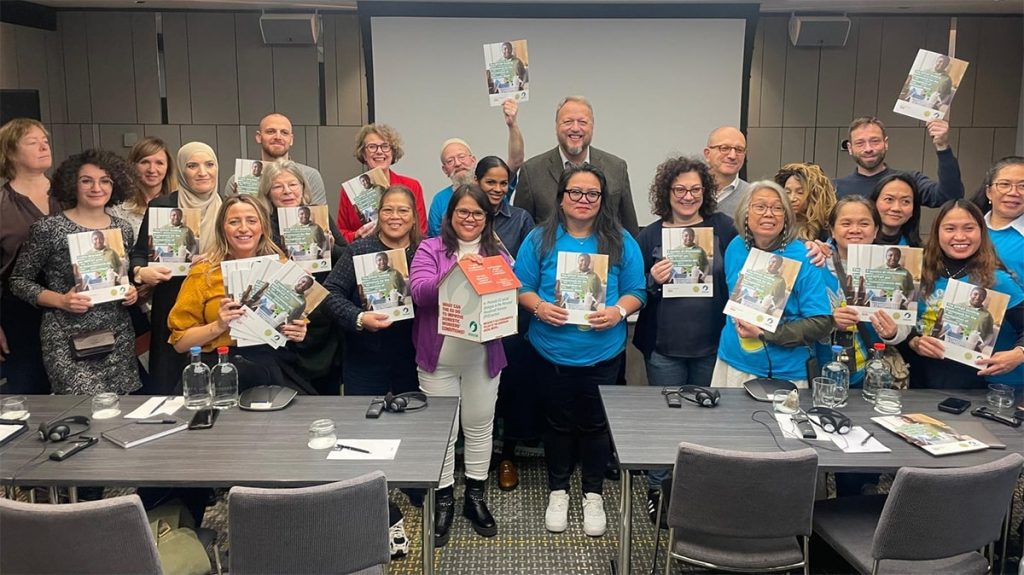
At a high-level event held on November 17 in Amsterdam, the European Federation of Food, Agriculture, and Tourism Trade Unions (EFFAT) officially launched the Guiding Framework for the Recognition and Regulation of Domestic Work, a landmark tool designed to formalise the sector, ensure decent working conditions, and grant domestic workers across Europe the recognition they deserve.
Domestic workers, providing a broad range of services including cleaning, caring and household support, are indispensable to Europe’s care and people’s needs in household infrastructure. Yet, they remain among the most vulnerable and undervalued workers in the EU, often undeclared, with low wages, and precarious employment.
Opening the event, EFFAT General Secretary Enrico Somaglia, highlighted the urgent need for change: “This Guiding Framework presents the building blocks of a true blueprint for the recognition of domestic workers. It clearly sets out the essential elements needed to achieve this recognition: strong collective bargaining rights, solid state support, and, above all, real political will. These are the foundations for ensuring that domestic workers finally receive the protection and respect they deserve”.
The Framework draws from successful national models in Belgium, Italy, Austria, France, and Sweden. It outlines essential milestones for fair and effective regulation, including:
- Decent work and full labour rights, including fair wages, safe conditions, social security, and collective bargaining
- Public investment and affordability measures, such as subsidies and tax deductions, to provide affordable quality household and care services.
- Professionalisation, including clear job descriptions, training pathways, and compliance with labour standards.
- Sectoral collective bargaining to uphold equal rights and fair treatment.
- Formalisation strategies, to materialise, recognition, valuation and professionalisation of the workforce.
Grace Papa, Domestic Work Political Secretary at EFFAT, emphasised: “Subsidies and tax incentives not only make services affordable but also generate economic benefits through increased tax revenue, higher labour force participation, particularly among women, and long-term reductions in welfare dependency”.
The guide outlines successful examples, including:
- Belgium’s Titres-Services system, which combines public support, collective bargaining, social security, and affordability
- Italy’s National Collective Labour Agreement, featuring automatic wage indexation and certified training
- Strong systems in Austria, France, and Sweden, showing that recognition and decent work can be achieved through multiple pathways
“This Framework is our call to governments and EU institutions: open the doors to recognition, formalisation, and professionalisation of domestic work. For too long, millions of workers, mostly migrant women, and often undocumented, have carried out essential tasks without recognition or rights and suffered due to intersecting discrimination. It is time to change that”, says Malu Villanueva, Chair of the EFFAT Domestic Work sector.
EFFAT and the IDWF call on the EU institutions, national governments and social partners to recognise domestic work as a strategic sector, adopt policies inspired by the EFFAT Guiding Framework, invest in accessible, affordable, and quality care, alongside decent working conditions.
Domestic workers care for Europe’s children, elderly, people with disabilities, and households. They improve work-life balance and make all other forms of work possible. With the launch of this new Guiding Framework, EFFAT took a decisive step toward the recognition and rights they have been denied for far too long. It is time for Europe to open the doors to domestic workers. It is time to care for those who care for us!

